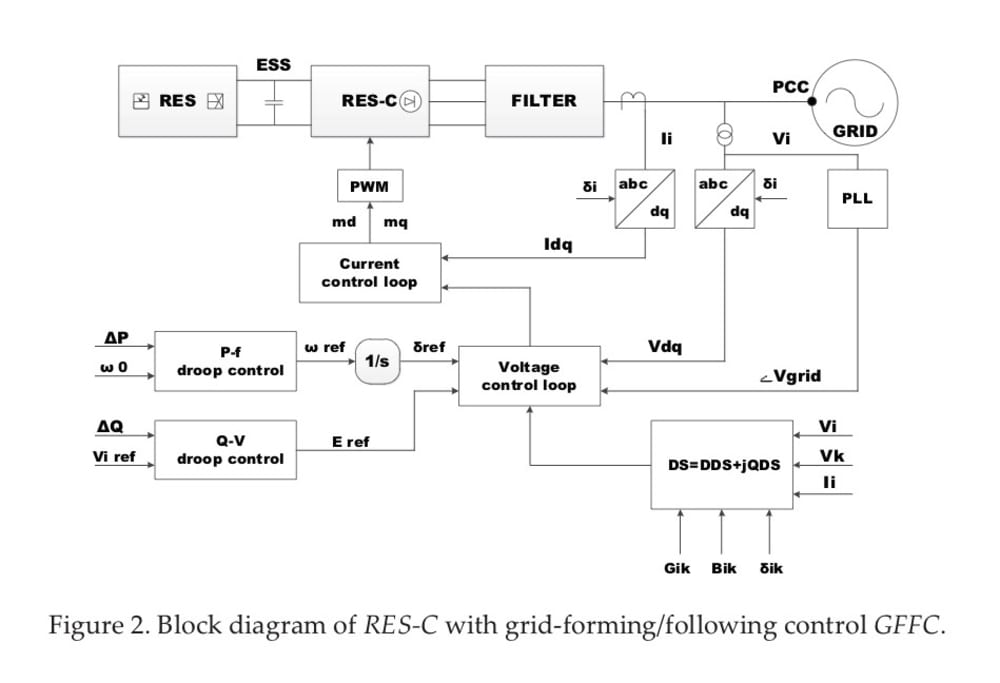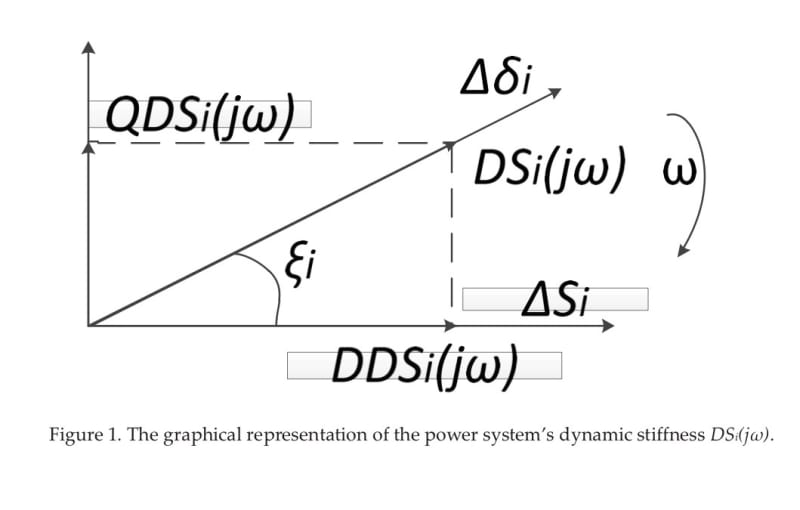Here is proposed a new control framework for converters of renewable energy sources, based on choosing their operation mode – grid-forming or grid-following depends on the dynamic properties of a power system. Accordingly with the proposed definition of the power system’s dynamic stiffness (DS) are defining its direct (DDS) and quadrature (QDS) components. The values of these components let us estimate a disturbance’s impact on a power system at bus i, and also the power system’s inertia around bus i at this disturbance. So, using the DS we can estimate the dynamic properties of a power system in real-time, and locally for each need bus. Based on this information, proposed different applications DS for resilience planning at increasing renewable power mix, and a new control strategy for the renewable energy sources converters (RES-C). In the proposed control framework for weak DS of a power system around bus i set in the grid-forming mode operation of RES-C, and for strong DS of a power system around bus i set in the grid-following mode operation of RES-C. RES-C mode operation can be changing depends on the measured value of a power system’s DS. So, proposed grid-forming/following control (GFFC) of a RES-C prevents unwanted interaction (“hunting”) as for fast-acting excitation systems of synchronous machines (SM)) between RES-C if they all were in grid-forming mode operation and parallel with SMs.
Like this entry?
-
About the Entrant
- Name:Oleg Agamalov
- Type of entry:individual
- Patent status:none





